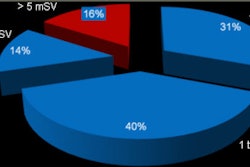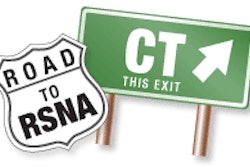Dear AuntMinnie Member,
Does the use of coronary CT angiography (CCTA) lead to higher downstream costs compared to nuclear-based stress imaging? That's the subject of a new article we're featuring this week in our CT Digital Community.
Researchers from Stanford University reviewed a database of 300,000 patients who had received invasive cardiac procedures such as catheterization to see which imaging approach -- CCTA or myocardial perfusion scintigraphy (MPS) -- resulted in more follow-up invasive procedures.
They found that patients who received CCTA had nearly twice the rate of cardiac cath as the MPS patients, and they had higher rates for other invasive procedures as well.
But are the findings emblematic of the fact that CCTA simply finds more disease than MPS? Several experts weigh in on the study in an article you can find by clicking here.
RSNA 2011 previews of HIT, US, and MRI
In other news, our Road to RSNA series continues this week with previews of important sessions in healthcare IT, ultrasound, and MRI at the upcoming RSNA 2011 meeting in Chicago.
Healthcare IT in radiology is exploding, and our RSNA preview covers much of what will be on tap at McCormick Place later this month. Learn about software for data mining and analytics, radiation dose management, and workflow and decision support, all in a single place you can access by clicking here.
In our ultrasound preview, find out how many radiologists and clinicians are taking a second look at this modality as an alternative to imaging technologies that use ionizing radiation. Presentations of note at RSNA 2011 will cover ultrasound elastography, contrast-enhanced ultrasound, and interventional procedures performed under ultrasound guidance. Learn more by clicking here.
In our MRI preview, published today, you'll learn about everything from refresher courses on MRI safety to scientific sessions on MRI contrast, as well as face-offs between 3-tesla and 1.5-tesla MRI. Also learn about a presentation on 7-tesla MRI for assessing mild traumatic brain injury, and the work of Japanese researchers who have developed a new compact MRI system for intraoperative use. Get the details by clicking here.
For a full overview of Road to RSNA, just go to rsna.auntminnie.com.




















